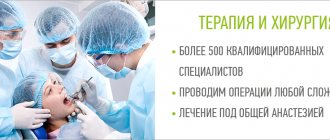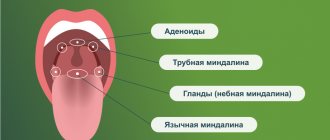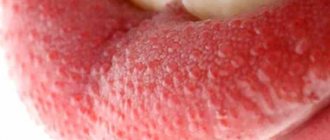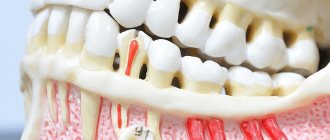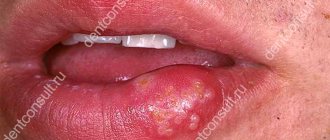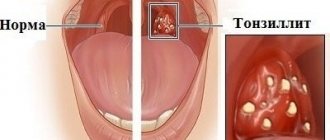Toothache always comes at the wrong time. It interferes with restful sleep, prevents you from concentrating, and pesters you at the most inopportune moments.
To get rid of unpleasant whining, terrible twitching and a growing wave of unpleasant sensations, it is enough to make an appointment with the dentists of the Nurimed clinic and undergo treatment.
If it is not possible to consult a dentist, follow the following recommendations. They will help alleviate the situation and temporarily relieve discomfort.
Causes of inflammation
As a rule, inflammation of the root part of the teeth is provoked by two factors - infection and trauma to the jaw and dental units.
In turn, the development of infections leads to:
- Untimely elimination of advanced caries.
- Incorrect treatment of pulpitis.
- A poorly made and then installed crown, under which food debris penetrates. When they decompose, they lead to the growth and reproduction of bacteria.
- Injuries to the gums due to an incorrectly installed crown or prosthesis. More often, these areas are visible as bleeding, scarlet-red, and swollen.
- Frequent diseases of bacterial sore throat.
- Chronic sinusitis, provoking the growth and reproduction of pathogenic flora.
In all of these cases, the root also becomes inflamed, since pathological processes are transferred to it.
As for injuries, as causes of pathology, these are:
- An incorrectly filled tooth, on which the load increases when chewing.
- Fractures that occur after injuries to the jaw, incorrectly installed crowns.
- Increased tooth mobility that occurs due to injuries to the nerves or vessels of the root canal.
- Excessively high crown restored from composite materials.
- The use of “old” antiseptics to treat canals that are inflamed (we are talking about arsenic).
Regardless of the cause of the development of the inflammatory root process, the patient experiences obvious discomfort and constant pain.
Prevention of hyperesthesia
To prevent tooth sensitivity, it is enough to follow the following rules:
- It is better to refuse toothpicks and brushes with hard bristles. Sonic or regular brushes with soft bristles are suitable for cleaning the surface of teeth, and irrigators that do not irritate the gums or damage the enamel are used to remove food debris.
- Remove tartar in a timely manner. However, it is not recommended to whiten your teeth yourself. This is only done in the dental office.
- Do not overuse solid foods; include vitamins and minerals in your daily diet.
- See your dentist regularly. A preventive examination should be performed annually. If there is a predisposition to hyperesthesia - twice a year.
- Use desensitizing pastes that can strengthen your enamel.
- Use a fluoride mouthwash. To achieve the effect, the duration of the procedure should be 2-3 minutes. A course of remineralization will help to avoid unpleasant sensations from drugs with a high content of potassium salts and fluorides.
Increased tooth sensitivity is not a death sentence. With proper and timely treatment, this problem can be eliminated. The main thing is not to let the situation get worse.
Author of the article
Symptoms, signs of the disease
Inflammation of tooth roots can be acute or chronic. The first variant of pathology is more pronounced. Here the unfavorable symptoms look like this:
- Almost constant aching pain in the affected area. Pain syndrome manifests itself regardless of the time of day. It intensifies if the affected area is impacted (cleaning, chewing, touching).
- Sensation of tooth enlargement. The patient feels the jaw not closing tightly.
- Enlarged lymph nodes under the jaw from the side of the inflamed part of the dental unit.
- Throbbing pain, accompanied by chills and increased body temperature.
- Pain transmitted to the trigeminal nerve.
Acute processes are often accompanied by the accumulation of pus in the affected area. Here the doctor faces the main task - removing secretions, eliminating the painful focus, and channel therapy according to modern protocols.
Signs of chronic pathology are:
- Pain occurs when pressing on the crown or chewing. If the tooth is not touched, it will not be painful.
- Bad breath.
- Formation of a fistula and exit of exudate through it. This symptom is especially characteristic of granulating periodontitis. This zone is often visible as a section of gum that has changed in color and appearance.
Chronic inflammation is often treated conservatively. Only in the most difficult situations is surgical intervention indicated - removal of the root tip or the entire unit at once.
Professional treatment of the inflammatory process
If any of the symptoms of inflammation in the roots occur, you should immediately contact your dentist. Depending on the clinical picture, the doctor selects one of the treatment tactics:
- Conservative help. It involves eliminating the cause of the inflammatory process, cleaning the canals, re-treating them, disinfecting the affected area, filling the canals, installing new temporary fillings with anti-inflammatory drugs. After complete neutralization of the inflammatory process, the doctor restores the anatomy of the unit with composite material or a crown. With conservative treatment, the patient must be prescribed a course of antibiotics. The drugs neutralize inflammation well. The doctor selects the type of drug therapy for internal administration and rinsing according to the age, as well as the medical indications of the patient.
- Surgical intervention (surgical therapy). It all depends on the area of root damage. The doctor decides to remove 1/3 of its area (apex), ½ part or the entire unit plus the dental alveoli. Today, modern dentistry practices maximum tooth preservation. In approximately 80-90% of cases, a diseased tooth can be saved and treated using a conservative method using properly selected antibiotics and without even removing the top of the root.
What to do if your tooth hurts?
First of all, try to make an appointment with a dentist for treatment as soon as possible. If this is not possible, then everyone usually has medications (tablets) for toothache in their home or car medicine cabinet that can reduce pain and wait for an appointment with the dentist in a more comfortable environment. In such cases, it is recommended to have the following medications in your first aid kit:
- Ketorol, Ketorolac are drugs with one active ingredient called Ketorolac. They help relieve severe pain for 4-8 hours.
- Nurofen, Ibuprofen, Ibuklin are medications with a pronounced analgesic effect for up to 6 hours, they additionally reduce temperature and eliminate inflammation, but it is not advisable to take more than 4 tablets per day.
- Nimesil, Ketanov are strong painkillers, the effects of which are achieved due to the synthetic component nimesulide. But it has many side effects and a long list of contraindications, so you can’t take more than 2 tablets a day.
- Tempalgin is a less effective drug, which is indicated mainly for moderate pain.
- Aspirin, Paracetamol, Analgin are medications with an antipyretic effect, but they will also help alleviate the patient’s condition. These drugs can combat mild pain. Paracetamol can be taken even by pregnant women.
- Papaverine, No-shpa - medicines against spasms and toothache. They allow you to quickly and effectively relieve discomfort.
When choosing a medicinal method to combat pain, it is necessary to take into account the recommended dosage, contraindications and the presence of chronic diseases.
Nurofen cannot be used by people with liver disease, but it effectively removes inflammatory processes due to codeine. Analgin damages tooth enamel, so the tablet is not placed on the site of pain. Tempalgin is not used for blood and kidney diseases. Limit per day – 6 tablets of medication. Ibuprofen is often used for toothache. This medicine relieves pain and inflammation, helps with hyperthermia. It is not recommended to use more than 4 tablets per day.
Anti-inflammatory drugs:
- Dexalgin. A non-steroidal drug with several release forms. Aimed at fighting inflammation.
- Nurofen. Used for pulpitis, periodontitis and swelling of the gums. Helps quickly combat an attack of pain.
- Nise. Relieves pain and inflammation, but does not eliminate the cause of the discomfort. Is a temporary solution.
Why are medications for toothache taken with caution?
- Differences in approaches to relieving unpleasant sensations in children and adults.
- Individual intolerance to the component is possible.
- You need to carefully read the instructions and take the medicine with caution if you have chronic diseases.
- Possible contraindications for use.
- There are clear restrictions on dosage per day.
IMPORTANT: taking a painkiller will not get rid of toothache forever, but only take temporary measures. The best way to relieve pain is to consult a dentist.
Treatment at home
In case of inflammation of tooth roots, home remedies or your own efforts are not enough. Since the process occurs hidden, only a doctor can determine the intensity of the lesion and later select treatment tactics. Self-administration of any antibiotics, anti-inflammatory drugs, and even more so the use of traditional therapy is strictly prohibited. Ignoring the problem and trying to treat root inflammation at home can lead to the formation of a purulent cyst, its further rupture and, as a result, sepsis.
It is worth considering that the roots of the teeth are located as close as possible to the brain. Therefore, any infection, pus, or serous contents that enter the bloodstream here quickly reach the brain vessels. No folk remedies (compresses, rinses) used at home will help here.
The only acceptable drug for home use is a local analgesic. To eliminate pain, you can take medications such as Ketanov, Ketalong, Analgin. After this, you should consult a doctor as soon as possible.
Content
- How inflammation manifests itself
- What is the danger of tooth inflammation
- What can you do at home?
- What will they do at the hospital?
- Is it possible not to go to the dentist?
- Prevention
Tooth inflammation is an unpleasant and dangerous event that requires an immediate response. Inflammation can start for many reasons. There are always bacteria in the mouth. Under favorable conditions, they begin to multiply and can damage tissue. Based on sufficient hygiene and preventive actions, a small inflammation of the soft tissues can develop into a much more dangerous complication - inflammation of the tooth.
Aimed Center - professional dental care
All types of dental services are provided by the Aimed clinic for residents of Moscow, Northern, Southern Butovo. The center employs doctors with many years of experience. Specialists provide therapeutic, surgical, endodontic, orthopedic, orthodontic treatment according to new European protocols. When treating tooth root inflammation and providing other services, we guarantee our patients:
- Complete painlessness of the procedure, use of proven, certified anesthetics;
- A comfortable clinic environment that is incomparable to hospital conditions;
- Use of new Japanese, American, European equipment for accurate diagnosis and treatment;
- Use of modern consumables, drugs from Israel, USA, Japan;
- Possibility of visiting the center from 08:00 to 21:00, seven days a week, holidays;
- Reception of patients of any age from the youngest to the elderly;
- Formation of favorable prices for all services without compromising the quality of the work performed.
- To make an appointment with a specialist, call +7 (495) 120-66-43. Clinic operators select a convenient time for your visit. And in the clinic’s parking lot there is always a free space for your car. We located at the metro station st. Gorchakova.
Remember, you should never ignore toothache. A minute of delay or self-therapy with folk remedies (rinses, compresses) threatens with serious complications!

